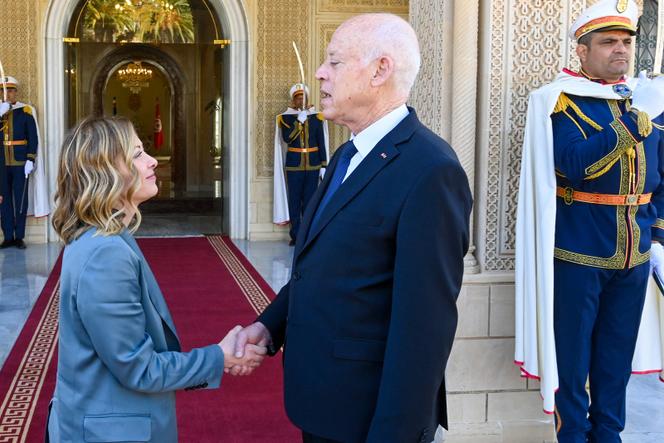


Torn tarpaulins and a few planks of wood scattered on the groundares all that is left of the makeshift shelter that once housed Ibrahim (a pseudonym) and his family. The migrant camp, one of many around the town of El-Amra on Tunisia's east coast where the 29-year-old Sierra Leonean has been living for the past 10 months, was swept away by heavy rains in September.
The several hundred men, women and children from several English-speaking African countries, who were already living in unsanitary conditions without running water, electricity or toilets, have lost almost everything. They don't even have enough food. "A few Tunisians show empathy and give us a little food, but it's very rare," deplored Ibrahim. "Our life here is miserable."
On this day in mid-September, the ground is still wet. On the horizon, there are only olive trees. To the east, a vast beach opens onto the sea and the hope it represents. "We just want to leave! We didn't come here to settle, but to get to Italy," said Ibrahim. But the heavy police presence, both on land and at sea, complicates this escape to Europe.
The migration corridors that criss-cross the African continent and converge on the Italian island of Lampedusa, just a hundred kilometers away, are now obstructed by the security arrangements put in place thanks to an agreement signed on July 16, 2023, between President Kais Saied and his European partners. Since the beginning of 2024, arrivals in Italy from Tunisia have fallen by 82%, according to the United Nations High Commissioner for Refugees.
While Saied appears to be the clear favorite for the presidential election scheduled for October 6, in which only two candidates – one of whom is imprisoned – will be running against him, the European Union (EU) is struggling to adopt a clear stance on the Tunisian president's authoritarian drift.
In a memo circulated to the 27 foreign ministers on July 7, which Le Monde has obtained, the European diplomatic service expressed concern about a "clear deterioration in the political climate and a shrinking civic space," with almost "30 politicians, activists, journalists, lawyers and businessmen arrested," a "one-person regime with a highly centralized presidential political system" and the "treatment of migrants, asylum seekers and refugees [which] is giving rise to growing concern."
Since Saied seized full power on July 25, 2021, dismantling democratic institutions and harshly repressing his opponents, his European partners have expressed a certain unease. However, their concerns were quickly overshadowed by another pressing issue when, in early 2023, Tunisia became the main departure point for illegal migrants to Europe.
You have 59.18% of this article left to read. The rest is for subscribers only.
